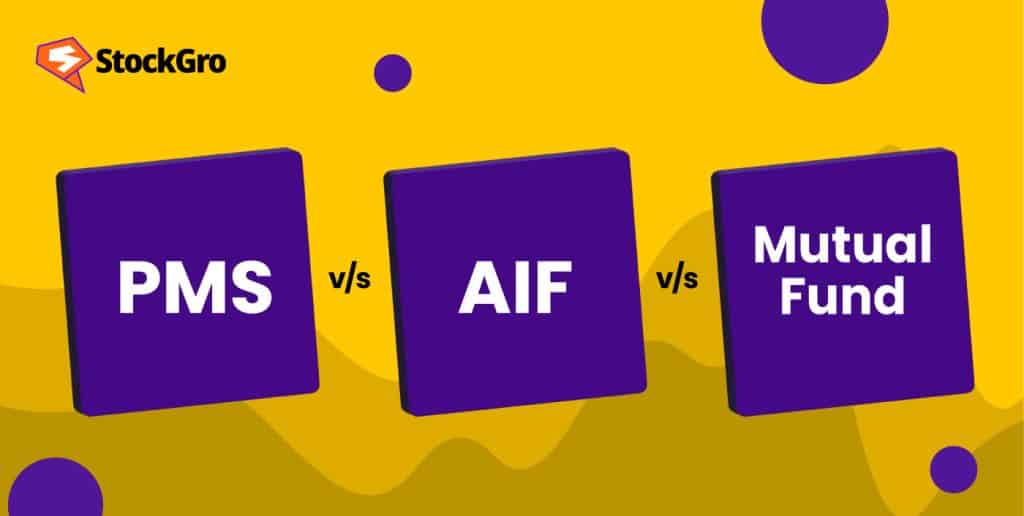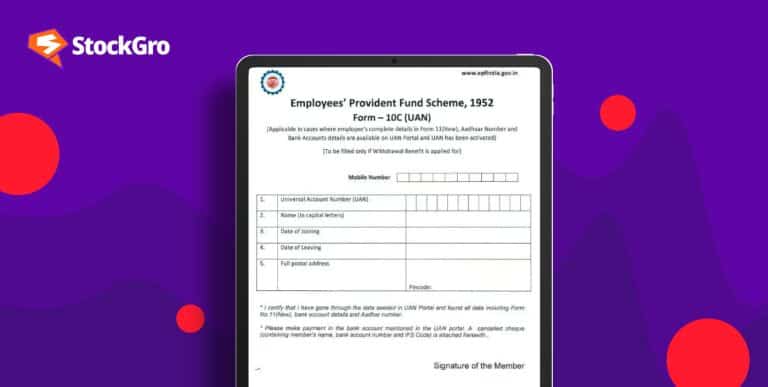
Seeking professionally managed investments? AIFs, pms vs mutual funds, have you covered. Each pools money from investors and is overseen by experts. But what makes all these SEBI- regulated (Securities & Exchange Board of India) options different? Dive into their unique features and see which one suits your financial goals. Learn more here.
What is a mutual fund?
This highly popular option gathers capital from multiple investors to create a large pool. Experts known as fund managers allocate these resources into various assets like stocks, bonds, and other securities. The main goal is to increase the overall worth.
So, when you get into a scheme, you actually buy units that make up your portion of the fund. These units’ worth, also known as the net asset value, or NAV, varies according to how the market performs.
These options come in various types. They differ based on asset class, management style, and more. This allows them to suit diverse financial goals and risk appetites.
For those who don’t have the time or experience to manage their own portfolios, these tools are suitable. They give you access to a wide range of professionally managed assets. Whether aiming to grow wealth or generate regular income, these funds offer solutions for various financial objectives.
To know more: Mutual funds or stocks: Which is a better investment?
What is PMS?
PMS or portfolio management services cater to investors seeking a personalised approach. In this, the professionals oversee your assets for you, aligning them with your financial goals and risk preferences.
A key feature of using such a service is the direct ownership of shares which allows for a highly personalised management style. There are two primary types:
- Discretionary, where the manager takes all the decisions,
- Non-discretionary, where you approve the expert’s advice.
A major advantage is the seasoned expertise of the managers. They bring in-depth research and market analysis to the table, aiming to maximise your returns. By diversifying across various sectors, they help mitigate risks.
However, PMS has its challenges. The minimum required amount is typically ₹25 lakhs, making it accessible mainly to high-net-worth individuals. Additionally, PMS investments follow the same tax rules as direct stock investments, which can be less favourable compared to mutual funds.
Also read: Explore the complex world of investment banks, one function at a time
What is AIF?
Alternative investment funds, or AIFs, combine the capital of prudent investors to pursue special assets. In AIF vs mutual fund, this vehicle makes investments in real estate, hedge funds, private equity, and other sectors, providing a distinctive opportunity for investors.
These private investment vehicles can be established as corporations, trusts, limited liability partnerships, or as other types of businesses; the most popular structure is a trust. Here are the types:
- Category I: These funds invest in sectors that are socially or economically beneficial. Examples include infrastructure initiatives, financing for small and midsize businesses, social impact ventures, and venture finance for start-ups.
- Category II: It is made up of various funds like real estate and private equity that don’t fit into Category I or III , as per SEBI rules. They avoid leverage except for daily operational requirements.
- Category III: These are the high-risk takers. They use advanced trading strategies and leverage, aiming for high returns. Hedge funds and private investment in public equity funds or PIPE funds fall under this category, using active market strategies.
These instruments require significant investments. Typically, the minimum is ₹1 crore, reduced to ₹25 lakh for insiders like directors, employees, and fund managers. Open to Indian residents, NRIs, and foreign nationals, these funds usually have a three-year lock-in period, indicating a long-term investment.
Why consider AIFs? They offer the potential for higher returns and portfolio diversification. Less correlated with the stock market, they can provide stability. However, they come with higher risks and complexities, making them suitable for experienced investors.
Comparative analysis: Mutual fund vs PMS vs AIF
| Basis of difference | Mutual funds | PMS | AIFs |
| Structure | Collective investment vehicle | Individually managed portfolios | Privately pooled funds |
| Objective | Long-term growth and income | High returns, personalised strategies | Diverse goals: high returns, capital preservation, diversification |
| Minimum investment | As low as ₹500 | ₹25 lakhs | ₹1 crore (except for angel funds) |
| Ownership | Indirect via units | Direct ownership of individual securities | Indirect through units or shares |
| Customisation | Standardised | Highly tailored | Varies from low to moderate |
| Types | Equity, debt, hybrid, solution-oriented, others | Discretionary, non-discretionary | Category I, II, III |
| Strategy | Conventional, generally lower risk | High-risk, high-return, personalised strategies | Niche, diverse strategies, sometimes high-risk |
| Taxation | Based on the type and holding period | According to individual’s capital gains rate | Depends on income type and fund category |
| Transparency | Moderate visibility | High clarity on holdings | Varies, often less transparent than MFs |
| Liquidity | Generally high | Moderate, depending on the agreement | Often low, with significant lock-in periods |
| Investor profile | Retail investors | Primarily HNIs | Sophisticated investors, both HNIs and UHNIs |
| Fees | Expense Ratio | Entry load, management fees, profit sharing | Management fee, performance fee, sometimes a hurdle rate |
You may also like: SIP investment: Your path to wealth building
Bottomline
Mutual Funds are great for small investors looking for affordable diversification. PMS caters to high-net-worth individuals with tailored portfolios. AIFs appeal to those seeking unique, high-return opportunities. Your choice should align with your financial goals, risk tolerance, and investment horizon. Combining these can help balance risk and maximise returns.
FAQs
- What is the difference between a mutual fund AIF and PMS?
A mutual fund pools money from many investors and invests in stocks and bonds. It’s easy to start and has lower risk. PMS, or Portfolio Management Services, is for rich people who want a customised portfolio. A manager picks investments just for you, but it’s riskier and needs a lot of money. AIF, or Alternative Investment Fund, invests in unique opportunities like private equity and real estate. It’s for sophisticated investors and has high risks and returns.
- Is PMS better than a mutual fund?
PMS might be better if you want a personalised approach. Your portfolio manager picks investments just for you. It can offer higher returns but also comes with more risk. Mutual funds are easier and safer for most people. They pool money from many investors and spread the risk. They are also cheaper to get started with. So, it really depends on your goals and how much money you have to invest.
- What is PMS in mutual funds?
PMS stands for Portfolio Management Services. It’s different from mutual funds. In PMS, a manager handles your investments directly. They pick stocks and other assets just for you. It’s personalised. You own the stocks yourself, not shared with others like in mutual funds. It’s great for people who want custom investment plans. But it needs a big minimum investment and involves more risk.
- What is AIF in mutual funds?
An alternative investment fund is different from mutual funds. It pools money from investors to invest in assets like private equity, real estate, and hedge funds. AIFs are for sophisticated investors who want unique opportunities. They often need a higher minimum investment. These funds can offer high returns but come with higher risks. It’s not for everyone, especially if you want quick access to your money.
- Is AIF risky?
Yes, AIFs can be risky. They invest in instruments like private equity and hedge funds. These are not like regular stocks and bonds. The returns can be high, but so can the losses. They often have long lock-in periods, meaning you can’t withdraw your money easily. It’s important to know the risks before investing.

